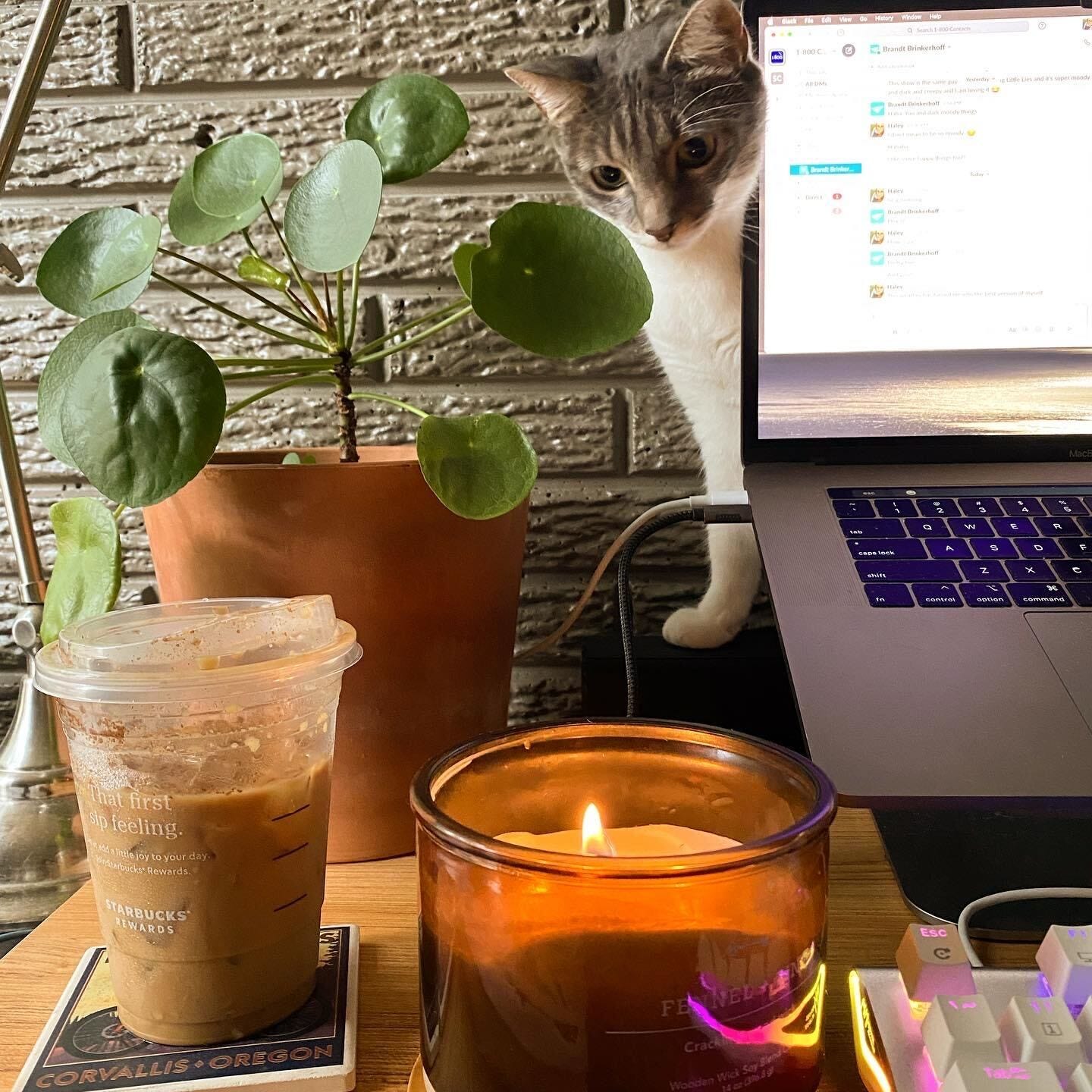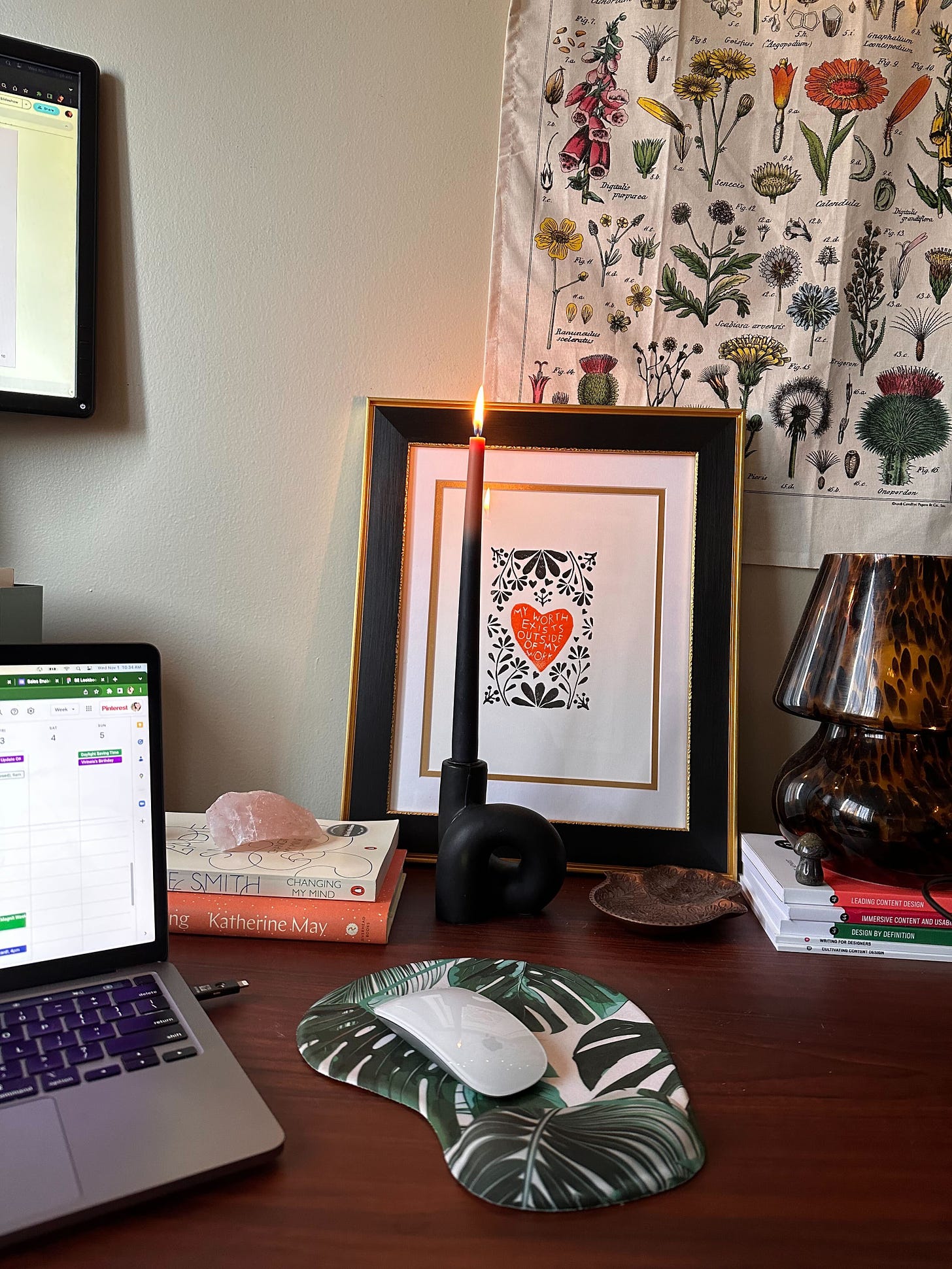how to: unblock your writing
discover some of the top reasons you can't get words on the page
“A writer who dreads writing may still produce magnificent results,
but what a tough life that must be.”
— Arwen Curry
About halfway through my very first quarter as a college writing teacher in 2011, I asked my students what their biggest roadblocks were to finishing their essays.
“Why is it hard to get your writing homework done?” I asked.
I was genuinely curious, and as their writing teacher, I thought that gaining some understanding would help me design better writing assignments. Many of them had struggled with our first few essays, and I was very willing to believe part of the problem was in what I’d asked them to do.
But my students looked confused.
“You’re not in trouble,” I said, “I’m just trying to understand. What makes it hard to do your writing homework?”
I watched the clock on the back wall tick away 10, then 15, then 20 seconds. I was fine with the quiet; my poor students were fidgeting. They were doing that thing all teachers have seen: looking at anything except you, because if they accidentally make eye contact, they’re convinced you’ll make them talk.
I sipped my coffee and waited.
“…No one has ever asked me this before,” a young woman ventured from the front row. “But lots of things make it hard to do homework. Especially writing homework.”
“I mean…I just like…really hate writing,” another admitted, her eyes fixed on the open notebook on her desk.
“That’s why we cheat and buy essays online,” a guy near the back joked. His tone was teasing and self-deprecating; he’d already talked to me about why he failed this same class the previous semester. He knew as well as I did that many students attempt to get their basic C in their one required English class by “outsourcing the assignments,” or in other words, plagiarizing.
“Well. Let’s explore this, then,” I said. “Everyone come up to the board and write down 2 or 3 reasons you don’t or can’t or won’t do your writing homework.”
I wrote, “I hate it” in loopy scrawl to help them get started.
Then, I sat down at a desk in the front row as they got to their feet.
“I hate writing. I love having written.”
—Dorothy Parker
Getting honest
As they stood at the board and debated how honest or snarky to be, several of them commented that they’d never actually written with chalk before. (Why are English classes always taught in the most dilapidated and underfunded spaces on campus? Sigh.)
Within five minutes, the board was dusty. Covered with scribbled phrases and a few drawings, the honesty on it was refreshing:
Hate the topic
Nothing to say
No ideas
Scared
Thinking about other stuff
Not sure where to start
Bored
Would rather watch TV
Too busy
Had soccer/baseball/band/chess practice
Other homework took a long time
I have a chemistry midterm
Too tired
Had to call my mom/boyfriend/roommate
Don’t like the assignment
I’m bad at writing
That last one, written in tiny chicken scratch, tugged at my heart.
“That’s quite a lot you’re all up against,” I said. “Let’s sort it into buckets, shall we? Maybe that’ll help us manage all this better.”
I asked them to help me group the problems, to come up with some method to our shared madness. Here’s what they came up with.
Writing problems in our classroom tend to fit into the following areas:
Strong feelings — like hatred or fear or boredom are getting in the way
Lack of inspiration — that pervasive, uncomfy feeling you have nothing to say or are in some way inadequate, not “good enough” to write
Stress — other homework and priorities (including TV and sleep) are hard to balance
Now, we can use these to help us complete the sentence, I told them. “I can’t write because…I’m feeling too much right now. Because I’m not feeling inspired enough. Because I’m too stressed out.”
“Now we know what we’re up against. Now, you can complete the sentence…and we can go from there,” I told them.
And all of these, I added, are neither pale excuses nor anything to be ashamed of. These are perfectly valid responses to writing.
Being forced to write, let’s just say it, is a terribly uncomfortable ordeal. Writing forces us to speak when we would rather stay silent, to put words on the page—to commit to an idea enough to put our name to it—rather than enjoy the vague, noncommittal energy of our racing thoughts. Writing can feel…precariously permanent, even in the privacy of a journal or diary.
Of course you would rather do your other homework; of course you’d rather go to bed.
“Good writing is clear thinking made visible.”
—Bill Wheeler
Writing is hard
Writing forces us to think about thinking. It makes us conscious of what we’re thinking to a level that is clear enough to our own selves that we can write it down. If what we write down is also clear to others—that is, it translates some intangible and amorphous idea in the mind down into a visible, traceable form of meaning for someone else—we typically call that good writing.
But thinking is, as many of us know, a deeply uncomfortable thing to do. Much nicer, much of the time, to stay busy. To enjoy our default settings. To not think. Especially to not think about all the things we’re thinking, or not thinking, about.
Writing is hard because thinking is hard.
It’s nicer—and more tenable—as a young college student to simply do as you’re told. Complete the math homework. Take the open-book quiz. Ignore the fact that you miss your mom or your girlfriend back at home or your best friends who all chose different schools; ignore that gnawing feeling in your stomach that you’re not sure about your major. Not sure how you’ll make that tuition payment next month. Not sure you made the team or the club or the grade.
It’s terrifying, really, to be asked to sit there and think. And not just think, but to think on such a conscious level that you can write down—and even stand by—what you’re thinking.
The three main reasons
I thanked them for their honesty and we spent the rest of the day skipping the lesson I’d prepared and instead investigating these writing barriers. I asked them to pick them apart, to find which parts they identified with and which parts weren’t a bother for them. I asked them to talk to each other, to find others who struggled with the same things, to find peers who perhaps had different struggles but still suffered the same writer’s block.
It was one of the best teaching days I ever had, and not only because I got to learn a lot too. It was one of those days I found a lesson I’d be able to take to every new batch of writers I had the privilege to meet as a writing teacher.
And every single time I taught it, the same problems cropped up:
My big feelings are getting in the way.
I don’t have anything to say or know where to start.
As soon as I sit down in the quiet to write, the stress of everything else in my life creeps in and takes the quiet away.
Of course, there were variants, as well as other strong categories we discovered along the way. Things like:
I actually have too much to say. I’m feeling incredibly passionate about this topic and that makes it really hard to know what parts to write down.
I have horrible past experiences with writing and writing teachers, so I don’t feel safe enough to share anything real in this course.
I’m not someone who communicates effectively through writing. Can’t I paint or play my guitar or do an interpretive dance instead?!
Despite these nuances, I kept finding that what most every single student needed was not a direct response to the exactness of their problem, but the freedom to state they had a problem at all. They needed to know it was okay to hate writing, to struggle with writing, to believe that everything they wrote was total shit. Because if you don’t admit it, don’t figure out what you’re feeling and what’s in the way…guess what you end up with?
Writer’s block.
I realized that by teaching writing, I was also teaching my students how to navigate profound discomfort. I was guiding them through the radical idea that it was okay if they got it all wrong. That trying to figure out what you think about something, what you believe, what you want to take a stance on, is brave. And that makes it hard, too.
Writing is emotional — that’s where the big feelings come from. It’s overwhelming — that’s why you often feel you have nothing to say or too much to say. And it’s stressful — it lays us bare to whatever we’re trying to keep quiet inside of us, it dares us to say whatever we aren’t saying.
It’s also its own solution
“So maybe you don’t actually hate writing,” I told my students. “Maybe you hate all the crap that comes with it. The feelings, the fear, the stress.”
Maybe if you can push through all that discomfort — make yourself stay in the chair long enough to start — you’ll find that writing can actually be a way through it. Far from being the pure cause of all that pain, writing can be your way out of it. Can offer you a way into and beyond what you think, why you think it, and how you want to share it.
Maybe you actually love writing, because it sets you free.
Or maybe you still hate it, but at least you understand why you hate it a little better.
Maybe, if you feel like you have nothing to say, you can start your writing session by admitting that. Now you can start to approach that block through writing. Give yourself permission to take your topic or issue or question from any angle. You probably have something to say. You just need permission to say it.
Maybe you feel like you have too many feelings. Now you can use writing to help you figure out which one(s) you’re feeling. Maybe they’re all a tangled mess, but as you write, you can pull the threads loose from one another. Find anger hiding in your sorrow; find ache tucked into your boredom.
Or maybe you’re just wayyyyy too stressed out to write. Now, you can write down every single thing that’s pissing you off and eating up your time. (One of the most common outcomes of every freewrite session I’ve ever held with students is a list. Asked to respond to a quote or a painting or an idea, many people end up writing, instead, a grocery list, or making a list of what they have to do that night or even listing out all the reasons they’re ready to end their relationship or move to a new apartment or find a new city to live in. This, far from being a waste of time, is a wonderful reason to write.)
An invitation
Next time you find yourself in the throes of writer’s block, pause and ask yourself: is writing the real issue I have right now? Or is something else—something uncomfortable—going on?
Ask yourself:
What big feelings am I having that make this hard? Am I stressed? Tired? Mad? Sometimes, when I’m in this spot, I refer to this feelings wheel to help me sort it out.
What do I want to say? Do I have “nothing to say,” but actually just need to let myself say that mean, angry, impatient, or nasty thing I want to say? (Go for it. You don’t have to show it to anyone. You can write it just for you, then burn it or rip it up. But for goodness sake: let it out.)
What’s stressing me out? What’s stealing my attention away? When I quiet my mind…where’s the first place it goes? Write about that place, that person, that memory. It’s probably on your mind for a reason.
Good luck to you as you begin your next writing session.
I’ll be over here, sorting out my skyscraper-sized feelings and making a list.
For more writing tips, check out these posts:









Haley, I can't stress this enough but HOW I WISH I had someone like you in my academic life during the PhD. I used to love writing, or at least do it academically with ease, until Stuff Happened and all my enjoyment and ease went out the window. So much of this post resonates with my own fears and blocks during that time, many of which I still carry around (they're like tight knots, that I've been trying and undoing for the past couple of years). Thank you for being the person my past self needed and my present self can appreciate!
Wow, I wish I would have had writing instructors who cared enough to explore this when I was in school! What's fascinating is that the reasons to not write are just as common outside of a classroom as they are inside of one. I tell my students that when you start making writing a "big ordeal" then the pressure mounts. But if you can allow the blank page to be your escape, your listening ear, it can do wonderful things for you. Thanks for sharing this piece, it really speaks to the kind of instructor you are -- your students are lucky to have you!